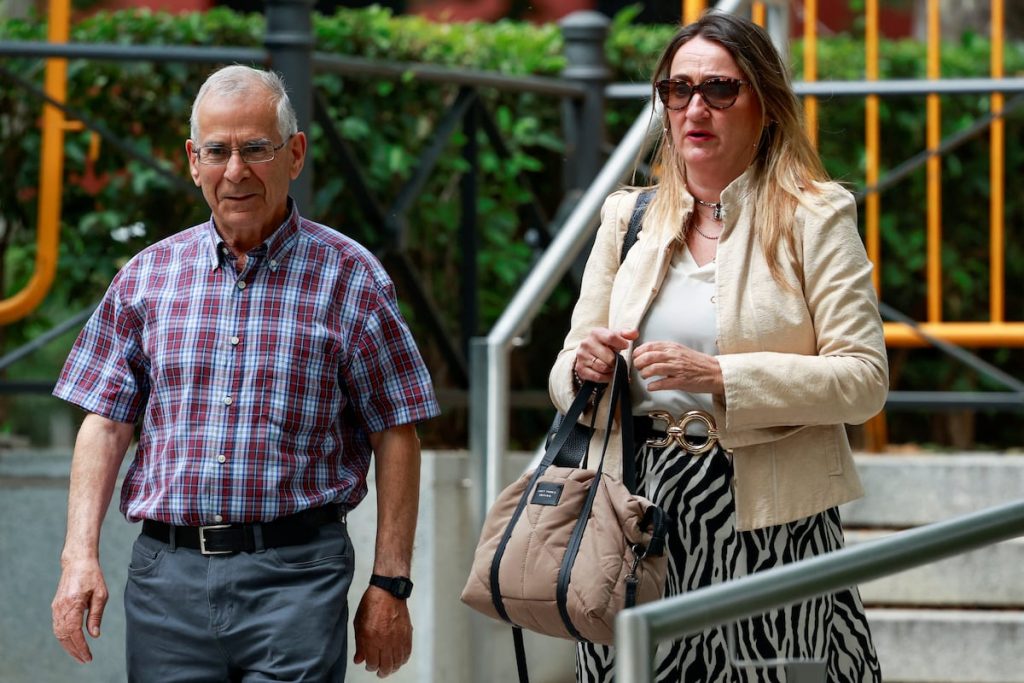Pompeyo González, a 75-year-old retiree who enjoys DIY projects and marquetry, appeared in front of the National Court on Thursday. He stated that he enjoys working on things at home for himself and others, as well as flying drones and taking photos and videos. He is currently on trial for sending six incendiary letters in 2022 to various recipients, including the President of the Government, Pedro Sánchez, and the embassies of Ukraine and the US in Madrid. Despite the overwhelming evidence against him, including materials found in his home, search history on the internet, and DNA traces found on the packages, he denies manufacturing the devices himself. He claims that someone must have gone through his garbage, collected the envelopes and other items, and used them to create the pyrotechnic devices that were sent.
The prosecution alleges that Pompeyo González, a retired official from the Vitoria City Council and resident of Miranda de Ebro (Burgos), prepared and sent these packages with pyrotechnic materials as a way to protest Spain’s support for Ukraine following the Kremlin’s invasion. The goal, according to the police, was to influence Spain’s stance on Ukraine. The investigation began on November 30, 2022, when an incendiary device exploded at the Ukrainian embassy, injuring a security guard. Similar packages were also sent to various other locations, including the Spanish Ministry of Defense, the US embassy, and a military equipment manufacturer. González denies any intention to disrupt public peace in Spain or destabilize the democratic system, maintaining his innocence and insisting that he is not connected to the incendiary letters.
Despite the evidence gathered against him, including materials resembling those used in the creation of the incendiary devices, González claims that he purchased these items for different purposes, such as packaging postcards, building cabinets, and creating a helipad for his drone. The prosecution, represented by the Association of Victims of Terrorism (AVT), argues that the DNA evidence found on the packages and devices conclusively proves González’s involvement. The AVT lawyer asserts that González not only attempted to disrupt public peace but also succeeded in doing so. González remains steadfast in his denial of any involvement in the incendiary letters, claiming that he has been falsely accused by the press and that he is innocent.
Throughout the trial, González has maintained his innocence and expressed his hope for a fair outcome. Despite his calm demeanor during his arrest, where he reportedly told police officers that they had made a mistake and that he simply enjoys marquetry, the evidence against him continues to mount. Witnesses and investigators have described his home as resembling a workshop, with various materials and tools found that could be used to create pyrotechnic devices. Despite González’s attempts to explain away each piece of evidence presented against him, the prosecution remains adamant in their belief that he is guilty of sending the incendiary letters.
As the trial unfolds, González faces a possible 22-year prison sentence for terrorism-related charges. The prosecution has presented a strong case against him, with DNA evidence, material found in his home, and his internet search history all pointing to his involvement in the creation and sending of the incendiary devices. González’s defense continues to deny any wrongdoing, attributing the evidence against him to innocent activities and hobbies, such as DIY projects and drone photography. The outcome of the trial will ultimately determine González’s fate and whether he will be held accountable for the incendiary letters sent in 2022.


